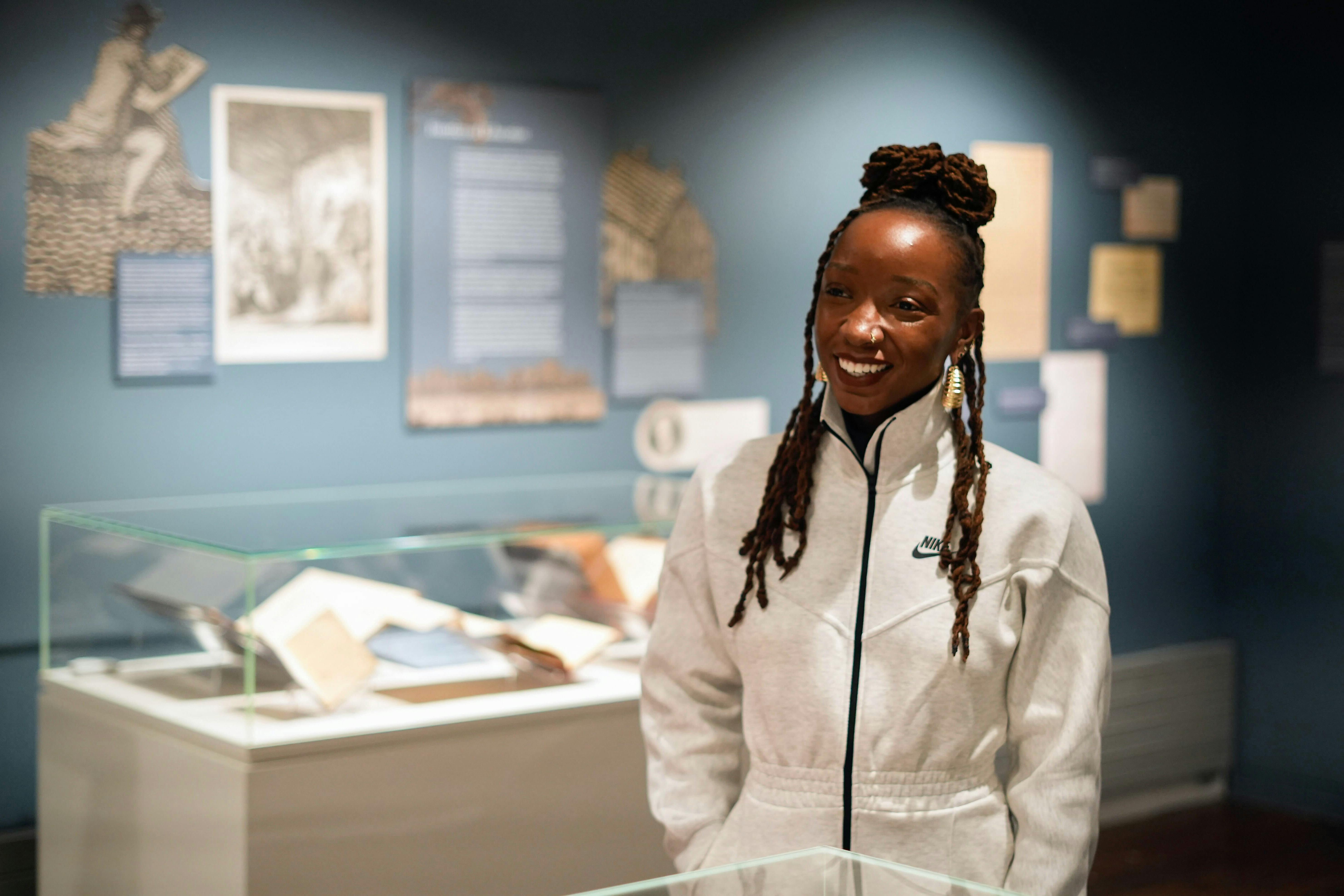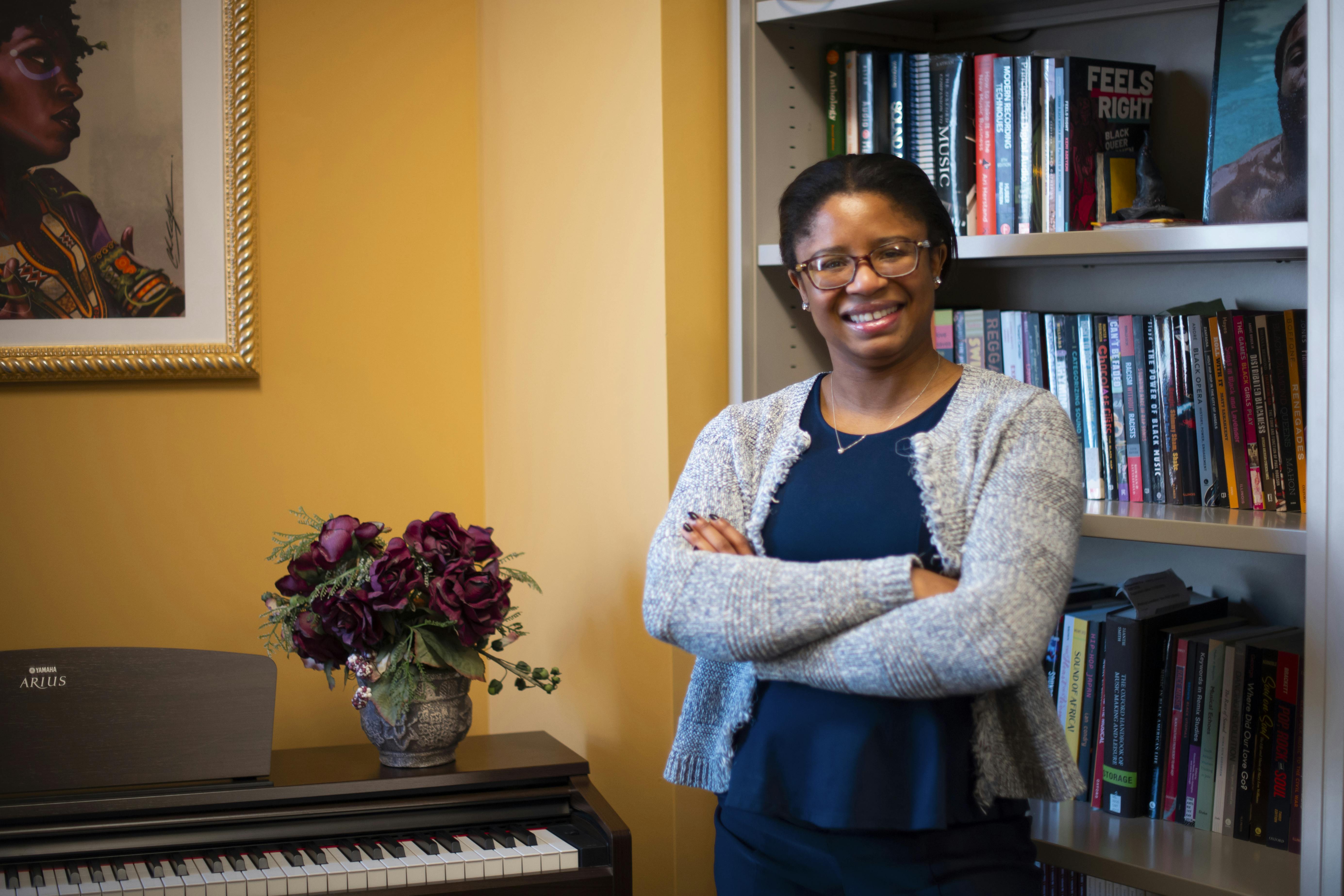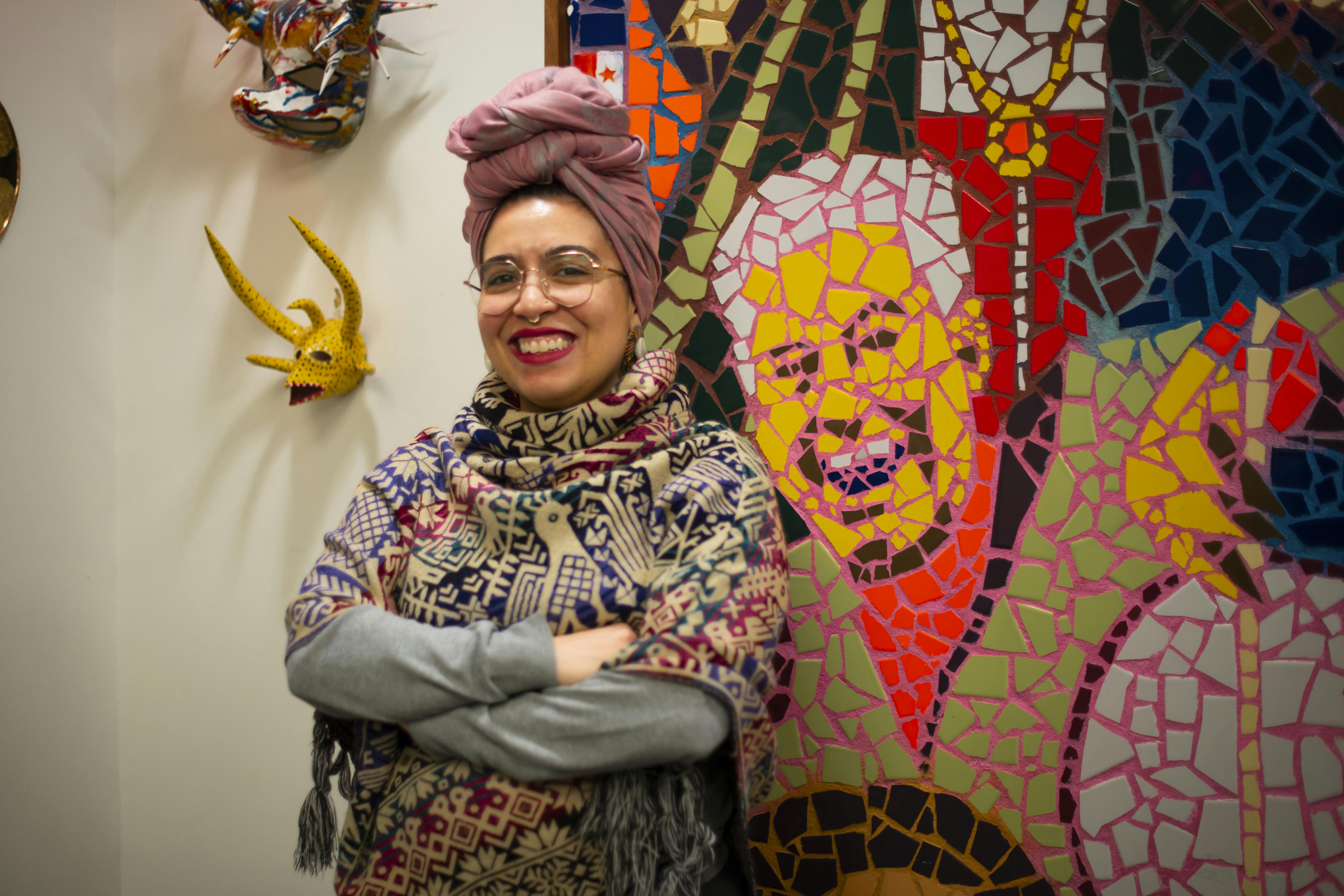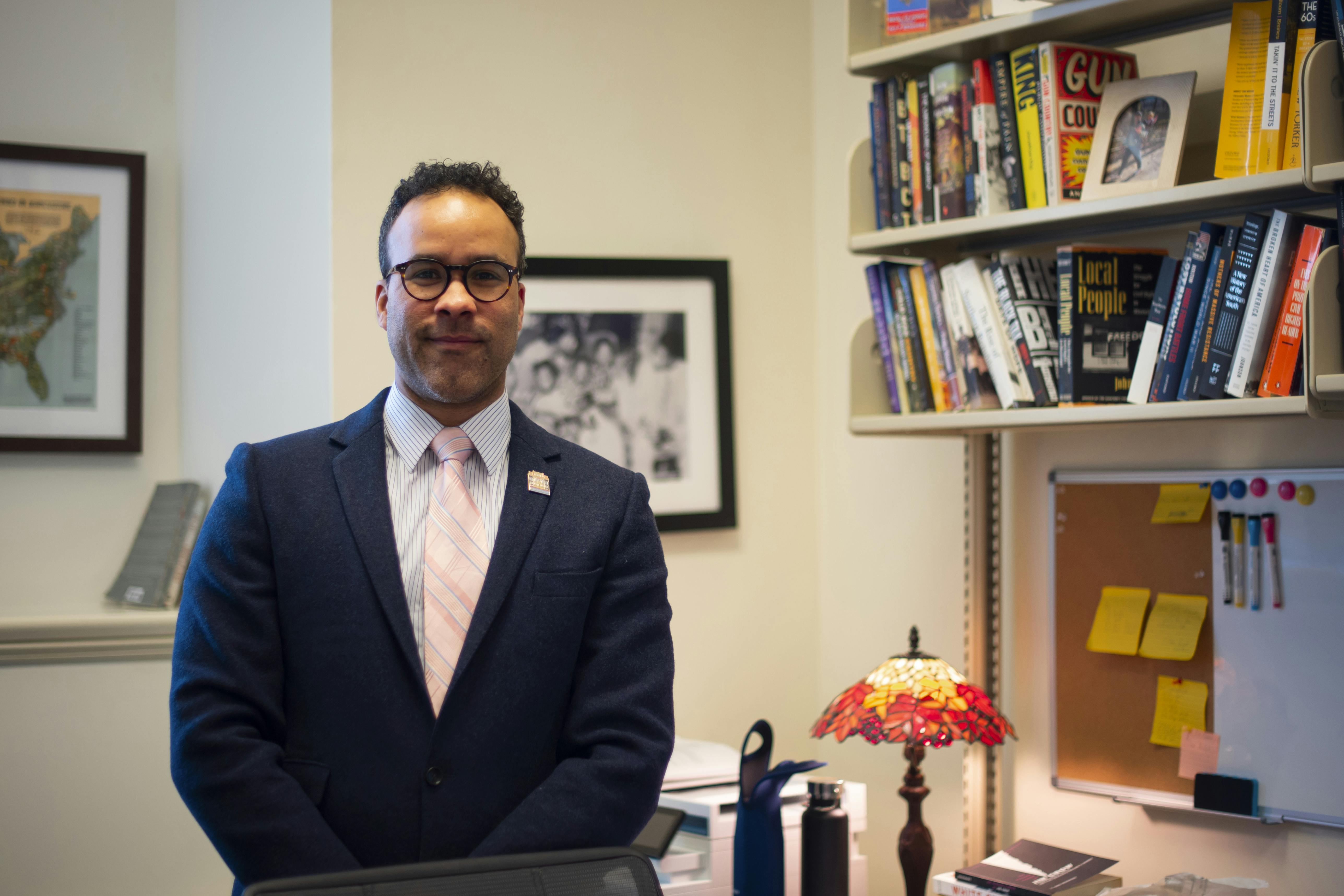
76 years ago, associate professor William Fontaine became Penn’s first Black faculty member. A philosophy scholar and an important authority on Black culture, he was one of the few Black faculty members at Penn and the only Black philosopher in the Ivy League. He traveled around the globe to discuss Pan-African issues, but his largest impact may be on the students he taught in his two decades at Penn — winning the University’s only award for teaching in 1958 after being named "Lecturer of the Year.”
In the following decades, much has changed. In 2022, 10.2% of Penn’s standing faculty identified as underrepresented minorities, and 38% of students identified as non-white. The University has also increased the hired faculty and unique courses offered in departments like Africana Studies and History, building a network for students and professors to study Black life and culture.
In the past month, as the University scrubs references to diversity, equity, and inclusion, Penn’s faculty and staff have remained committed to teaching their complex and diverse lessons. Here are the stories of four Penn faculty members who are teaching Black history, culture, and identity in innovative ways.

Breanna Moore, History Ph.D. Candidate and Fontaine Fellow
To honor Fontaine’s legacy, a fellowship was established in 1970 to support underrepresented graduate students in their studies at Penn. Ph.D. candidate Breanna Moore is one of those fellows.
In her time as an undergraduate and graduate student at Penn, Moore has used multimedia displays to disseminate history, such as developing an exhibit on the Penn & Slavery Project’s augmented reality tour. She currently teaches HIST 2162: “Beyond 40 Acres and a Mule: The History & Practice of Reparations in the African Diaspora” — an ABCS course focused on reparatory and racial justice. This course, she says, interrogates critical questions, asking, “How did enslaved people and their descendants conceptualize reparations? What strategies do they employ to achieve reparations? How do present-day movements for reparations seek to address historic harms?”
In the classroom, Moore challenges her students to see the intersection of history and activism.
“This is an action-oriented course that explores the root of reparations, which is repair,” Moore said.
In her dissertation, researching Britain’s indemnities during the abolition of the transatlantic slave trade, she found that the period “doesn’t get a lot of attention.” In her course, she said she aims to bring forward the conversation about who has been compensated for the legacies of slavery and who hasn’t.
“I was inspired to create this course because of my passion for history and learning about the struggles of people of African descent who were impacted by transatlantic trafficking in African people and the institution of slavery,” she said. “I wish that I had the opportunity to take a course on reparations when I was an undergraduate.”
As a consultant for the New Jersey Reparations Council and former co-chair of the Philadelphia Reparations Task Force — among many other leadership roles and fellowships — she has played a key role in reparations organizing. She has also advised Georgia state lawmakers and the United Nations on reparations policy.
“It was only natural to bring this to my academic pursuits,” she said.
Moore’s work reflects her commitment to using Black history education to connect with real-world advocacy. For the final project, students will use historical research, creative arts, and multimedia tools to engage with Philadelphia’s history of slavery.
In the long run, Moore said she wants people to remember that academic work is not separate from the ongoing work of reparatory justice.
“We are rooted in our community engagement, scholarship, and action-driven research,” Moore said.

Jasmine Henry, Assistant Professor in Music
One of Gregory College House’s faculty fellows, Jasmine Henry said the students she meets shape her courses. She’s currently teaching MUSC 3440: “Black Music and Sports,” a curriculum she built after noticing a scholarly gap in the field of Black music studies.
“I wanted to be inclusive but also expansive in thinking about [music and sports],” Henry said. “It does connect with the past, but a lot of it lives in contemporary moments, too.”
According to Henry, when she was designing the course, she aligned her syllabi with events happening during the spring semester. such as the Grammys, the NCAA football playoffs, and the Super Bowl.
“These are national moments and platforms that say a lot about where we are at any given cultural moment,” Henry said. “We had a ton of fun after the Super Bowl unpacking Kendrick Lamar's performance, and it was amazing to see just how many of the themes we already discussed — nationalism, patriotism, race, gender, spectacle — were represented in that performance.”
Henry said one of the best parts of the course is the conversations it sparks among her students, friends, and family. She said the intersection of Black music and sports exists in many “big moments” that people are already aware about — such as Jesse Owens, Jackie Robinson, Ella Fitzgerald, or Billie Holiday — which allows her course to connect to the “social and cultural histories in the country.”
“One of the big things is how Black music and Black sports have been some of the most high profile arenas where people have broken through the color line in this country,” she said. “Those are some of the first places of integration in the United States. I think they’re so relatable, and they resonate so much together because of that very history.”
Looking broader, Henry said she believes the network of students, faculty, and cultural clubs on campus keeps Black studies unique and vibrant at Penn, with a wide range of courses and topics.
“There exists a really strong community that a lot of these programs and courses are grounded in, and it's almost a community that can stand on its own right,” Henry said. “It has its own priorities and principles, but also still has visibility and impact in the broader university … Black studies and courses on Black issues might not be at the center of Penn, but there is support for it, and there's community for it.”

Krista Cortes, Director for La Casa Latina
A familiar face for students who frequent La Casa Latina, Krista Cortes is also using her own course to advance Black studies. It’s her first time teaching her self-designed course — GSWS 3160: “Black Magic: Transnational Feminist Perspectives of AfroLatinidad” — which focuses heavily on identity and the diaspora.
When creating the curriculum, Cortes said she reflected heavily on her own academic journey and the self-discovery process it took her on.
“There's definitely a push to put together something that is … generalizable,” Cortes said. “Something more broad that might feel like it would interest more folks. I was like, what would be a class that I would love to take? That's where this class came from. So, it was definitely a labor of love, a deeply personal project.”
Cortes said it was important to her that the course not just offered an open and welcoming space for conversations but also allowed students to personally connect with a “collective of experiences.”
“How can I both give folks a language to talk about [their experiences] so it feels like [they’re] not the only one, [but] at the same time, I also want to normalize not using academic language,” Cortes said. “That's a balance I try to strike in the class.”
A broad theme that guides Cortes in her work and in the classroom is the importance of creating points of entry for all people.
“How can I design multiple entry points into something so that the maximum amount of people can find a way in and feel connected to something?” Henry said. “What does that look like? It looks like offering opportunities for folks to speak from their experience, and then from that, people find points of connection. And now, all of a sudden, a thing that didn't feel relevant on the surface is actually relevant to everybody.”
At the end of the day, Cortes said the most important part of her work is to celebrate the “multiplicity” within the Latinx and Afro-Latinx communities.
“We're talking about a facet of Blackness [in the class],” she said. “Blackness is not a monolith. Look at all of the multiple ways you can learn and teach. It's not just about slavery, right? … It's a rich tapestry of things that spans an international context.”

William Sturkey, Associate Professor of History
Though History professor William Sturkey is only in his second year at Penn, he’s already left his mark. An experienced instructor and passionate historian, Sturkey said he aims to connect his students with the lives of those who came before.
“One of the things that I have really settled in — who I am as a historian — is bringing working class, marginalized people back into the mainstream of American history,” Sturkey said. “Their experiences are more reflective of the American experience than all the presidents and all the business leaders and tycoons and people that we studied.”
This semester, Sturkey is teaching a course unpacking the “history and memory” of the civil rights movement.
“It's the most powerful social movement in the history of the world, I think,” he said. “It's just absolutely incredible to introduce young people to people that dreamed and fought and worked so hard to make our country a better place, not just for them, but for all the people like us that came after … I'm obviously the instructor, but in many ways, I feel like I'm just a facilitator between students and some of the most amazing Americans who have ever lived.”
Even beyond the borders of campus, Sturkey continues to educate. Through the National Endowment for the Humanities and the Children's Defense Fund, he has trained K-12 teachers on how to introduce African American history to students of all ages and has also gone into communities — from middle schools to senior living homes — to tell these stories.
“I've done these in different parts of the country, and they have expert faculty like me come in and talk with people about, how do you teach the Freedom Schools or how do you teach the March on Washington?” Sturkey said. “Helping expose K-12 teachers all over the country to different techniques and documents has been something that I've done a lot in the past and has been really rewarding.”
Now, in his position at Penn, Sturkey said he has the chance to introduce students to histories and discussions they never had exposure to before.
“I really love teaching the students here; these are the best students I've ever worked with,” Sturkey said. “I think many of the faculty feel that way. The articles share news of faculty when we're going to the White House or publishing in The Atlantic or these fancy things, but the best thing we do — because it's the thing that we get rewarded for every day — is teaching.”
The Daily Pennsylvanian is an independent, student-run newspaper. Please consider making a donation to support the coverage that shapes the University. Your generosity ensures a future of strong journalism at Penn.
Donate





Most Read
Department of Education opens investigation into Penn over ‘inaccurate’ foreign donation disclosures
Former Penn swimmers applaud Department of Education ruling that Penn violated Title IX
As deadline nears for Penn to comply with Department of Education demands, University remains silent
More Like This